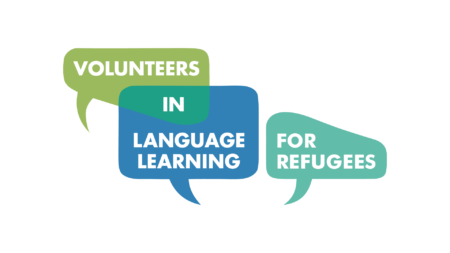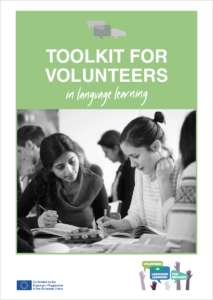Skills and Qualities

Before we dig into the practicalities of supporting language learning, we outline here some of the general personal qualities that make a good volunteer. Anyone can be a volunteer, as long as they are reliable, empathetic, friendly and respectful.
In the course of our research we’ve talked to teachers, language learners and volunteers themselves about ‘best practice’ - the attitudes and behaviours that make volunteers genuinely supportive. You can work to develop these in advance of beginning to work with language learners. You can also return to this section for reflection throughout your time as a volunteer:
Much of this builds personal qualities that you may already have and the strengths that you’ll bring as an empathetic person and an expert speaker of the language. On the following pages we give more in-depth information about how to best support language acquisition. But the attitude towards refugees, language learners and the learning process all have a direct impact on how much genuine support you’ll be able to offer, so it’s a good place to start.
The Council of Europe Toolkit offers some interesting resources for reflection to supplement this toolkit:
https://www.coe.int/en/web/language-support-for-adult-refugees
Warmth and Empathy
Learning a new language can be stressful. Learners can feel exposed, especially if others don’t share their language and there is no safety net. Migrating to a new place, whatever the circumstances, also brings stresses and is a recognized risk factor for mental health problems. One simple response to this is to be as kind and friendly as possible and empathetic if learners are having a hard time.
Stress can be a barrier to learning, as it reduces the learners’ inclination to take risks with their language and stretch out of their comfort zone. One way you can reduce stress in language learners you are helping is to be as kind and friendly as possible. This has to be authentic for you - not everyone can smile every minute of the day - but it really helps to be warm, open and approachable. The silences and the breakdowns in communication will not matter so much if the learner feels comfortable with you.
Reliability
Reliability and consistency are crucial when it comes to volunteering to help people learn their new language. Being a reliable volunteer will show learners and colleagues that you take them and their learning seriously. It is great if you can volunteer for a long period of time (several months or at least the period of time that has been agreed in advance). Language learning relationships can take time to get going and benefits accrue over time.
For newly arrived refugees the regularity of the meetings can be very important because it can help to give them a weekly structure. If you need to miss a session/appointment, give your colleagues and/or language learners plenty of notice so they can plan around your absence. The main thing is to communicate well with the people you are working and volunteering alongside.
Download the entire article as PDF file
"If you have come here to help me you are wasting your time, but if you have come because your liberation is bound up with mine, then let us work together."
Lilla Watson, Aboriginal activist

